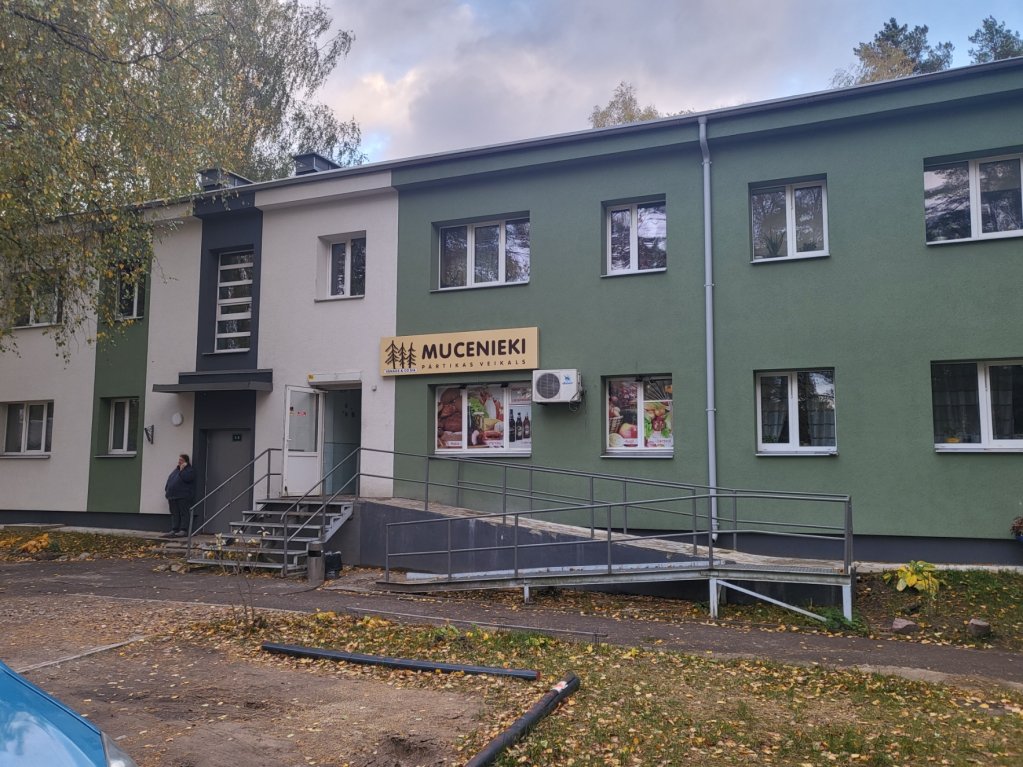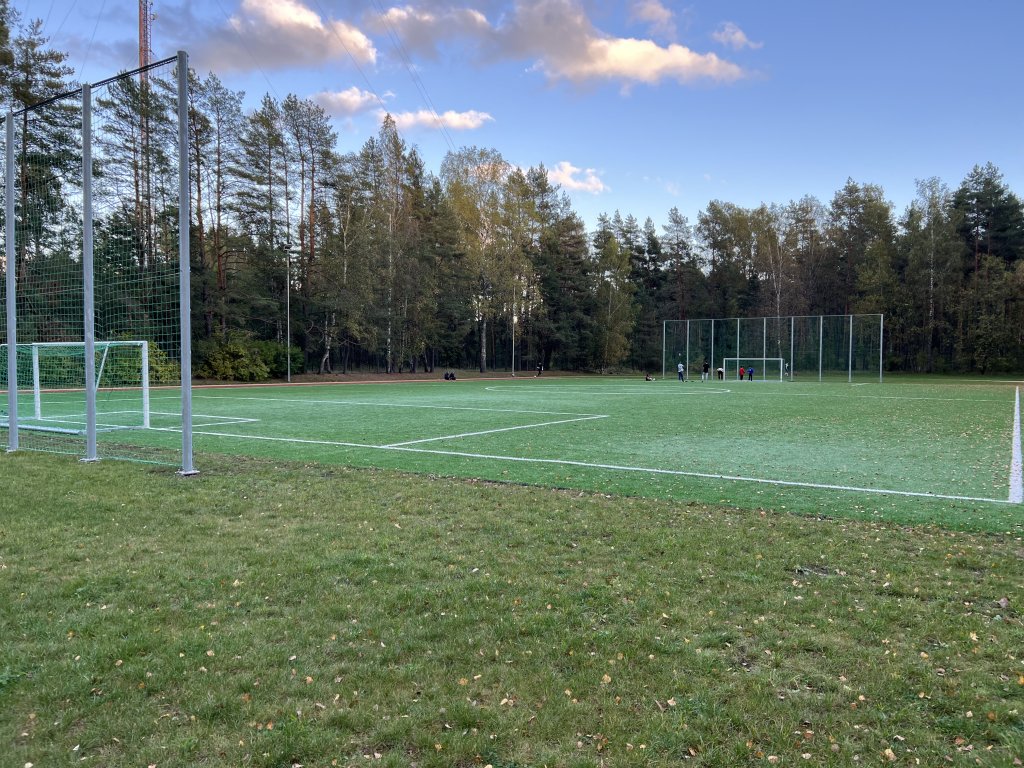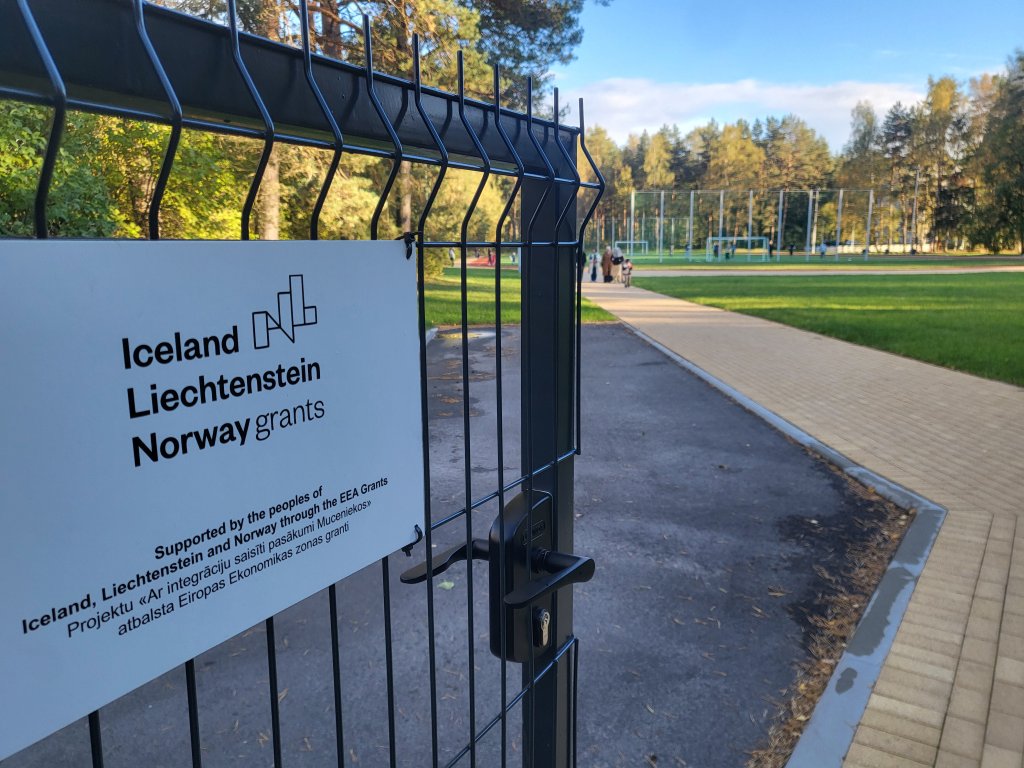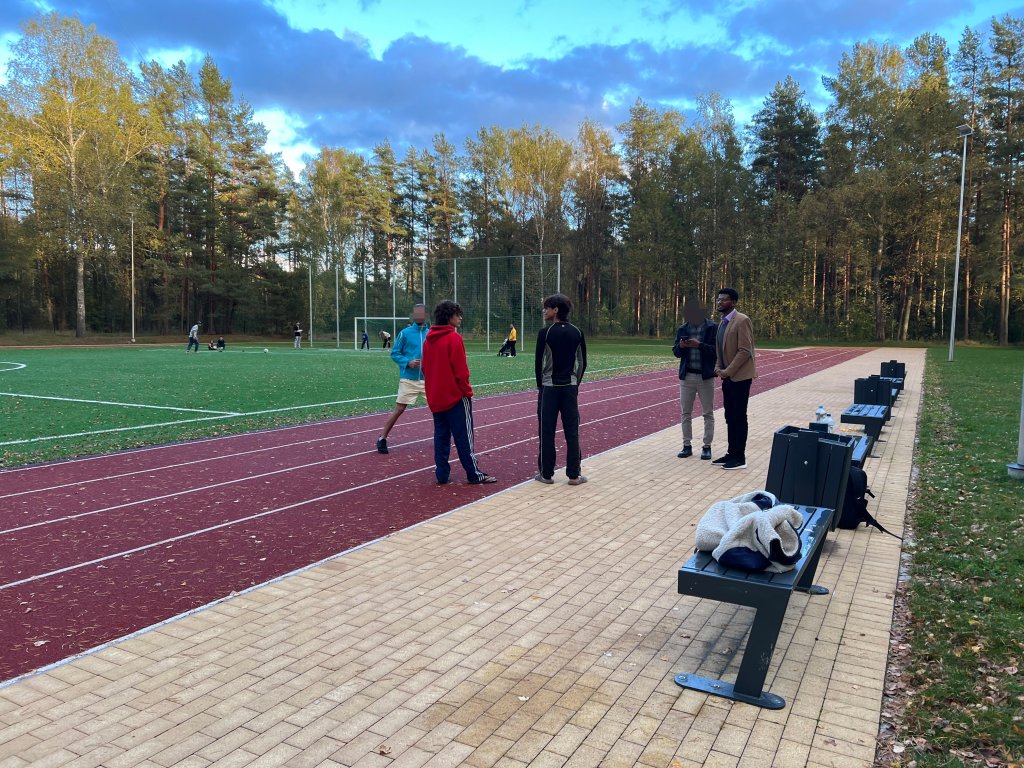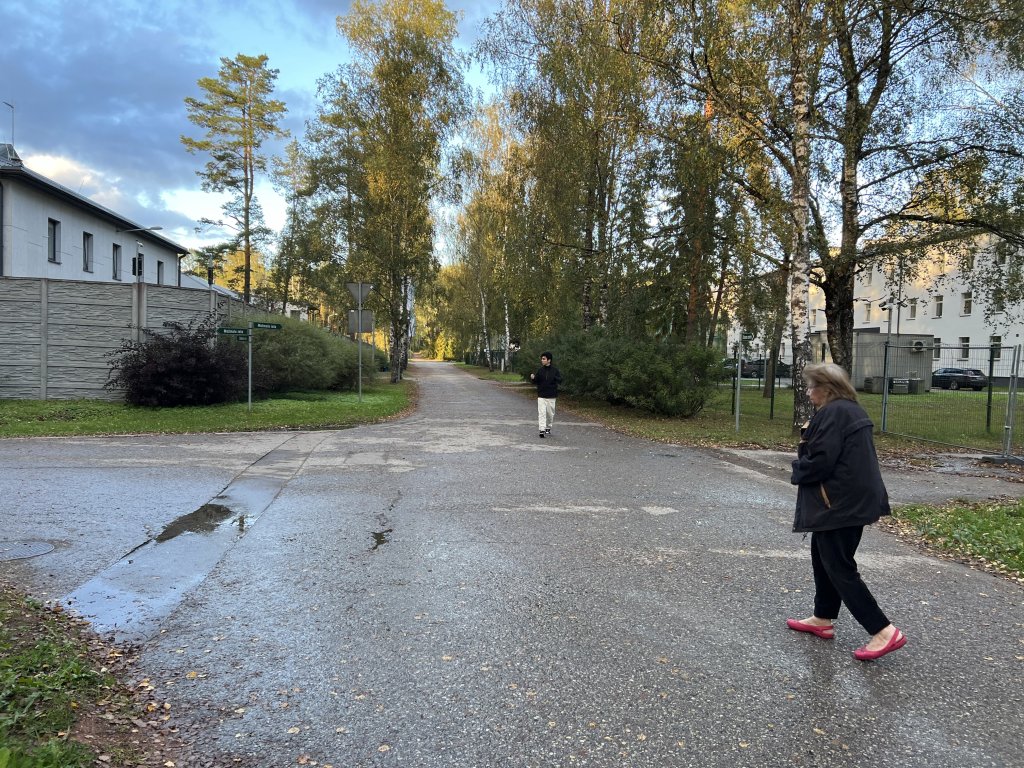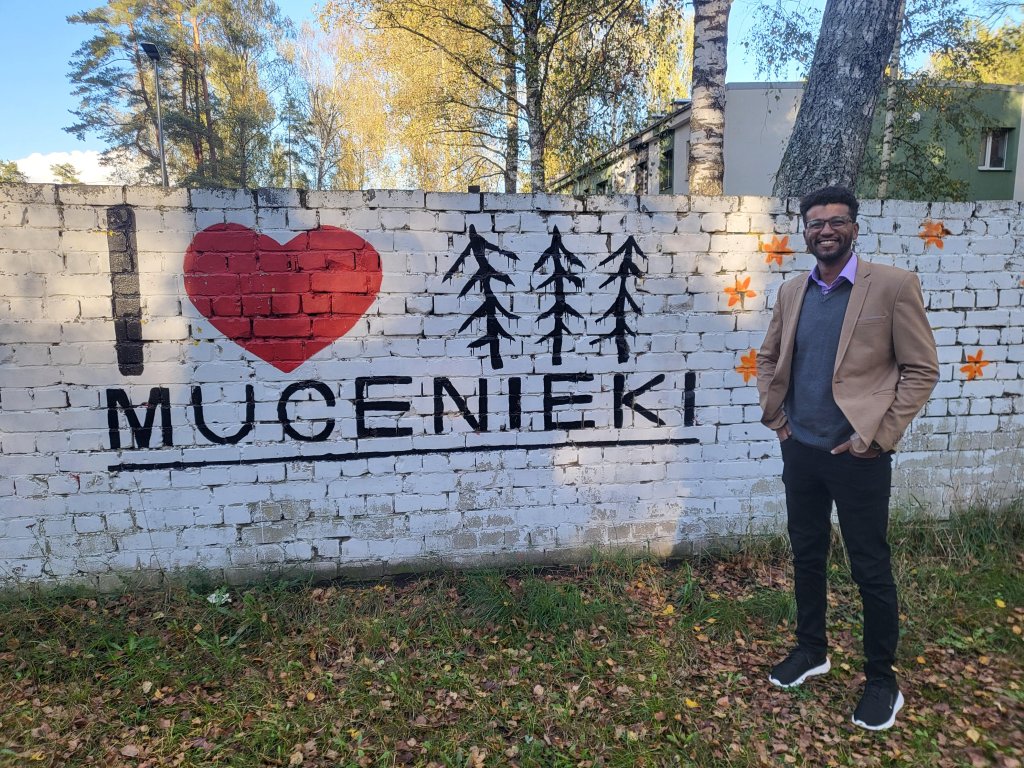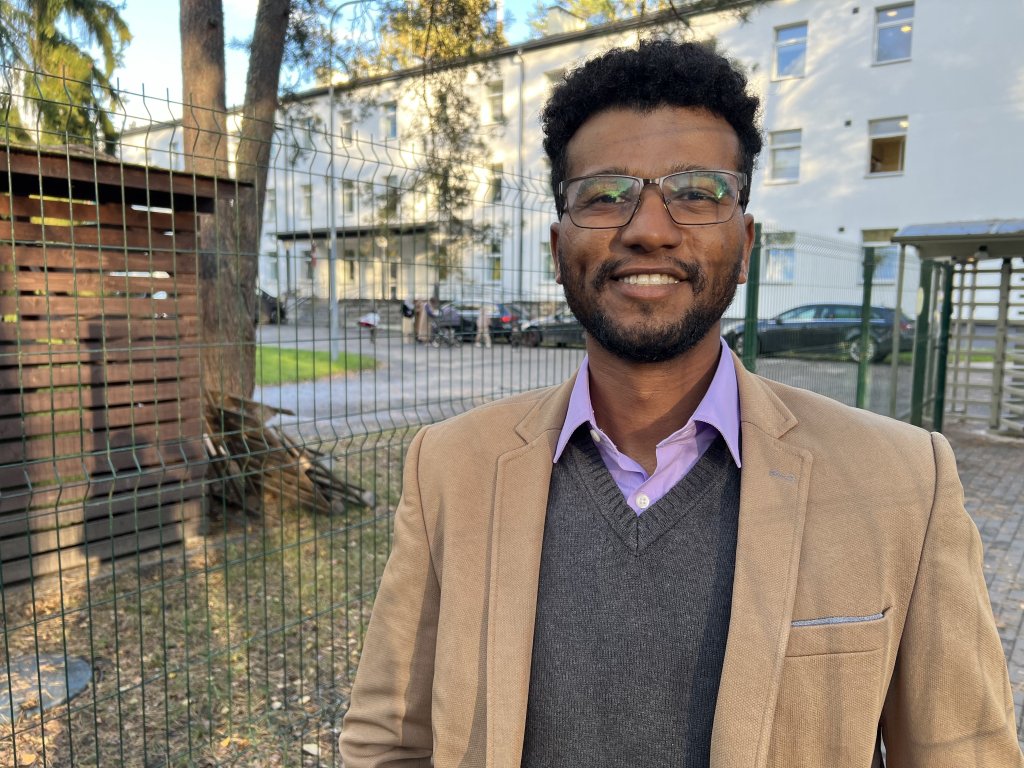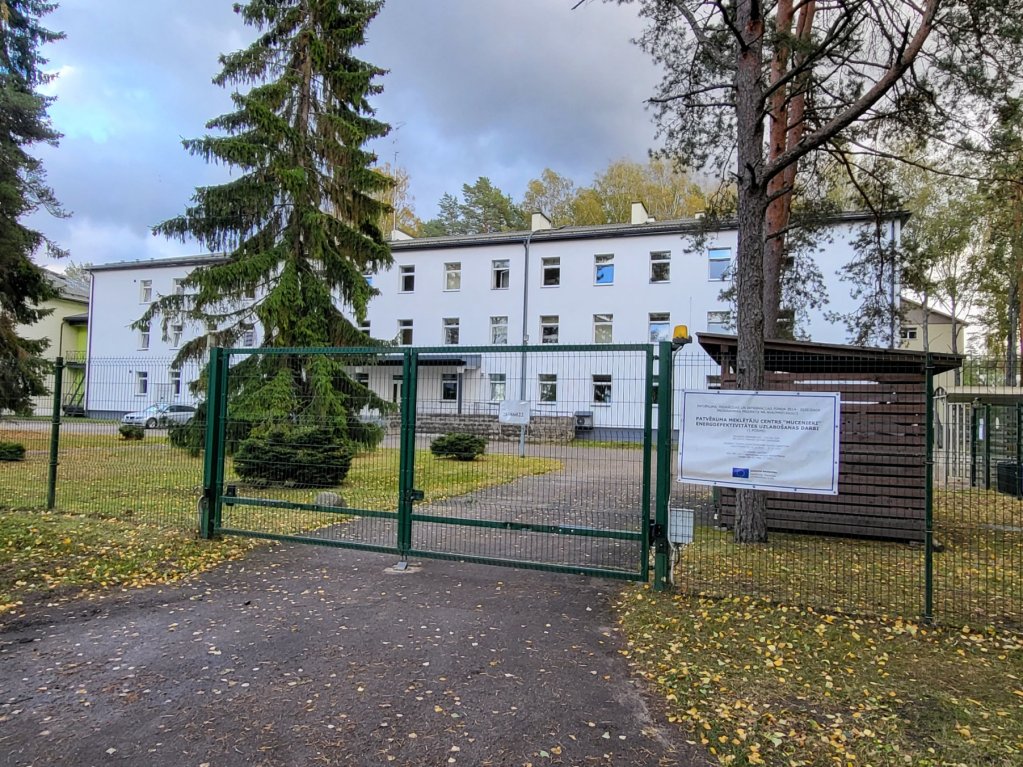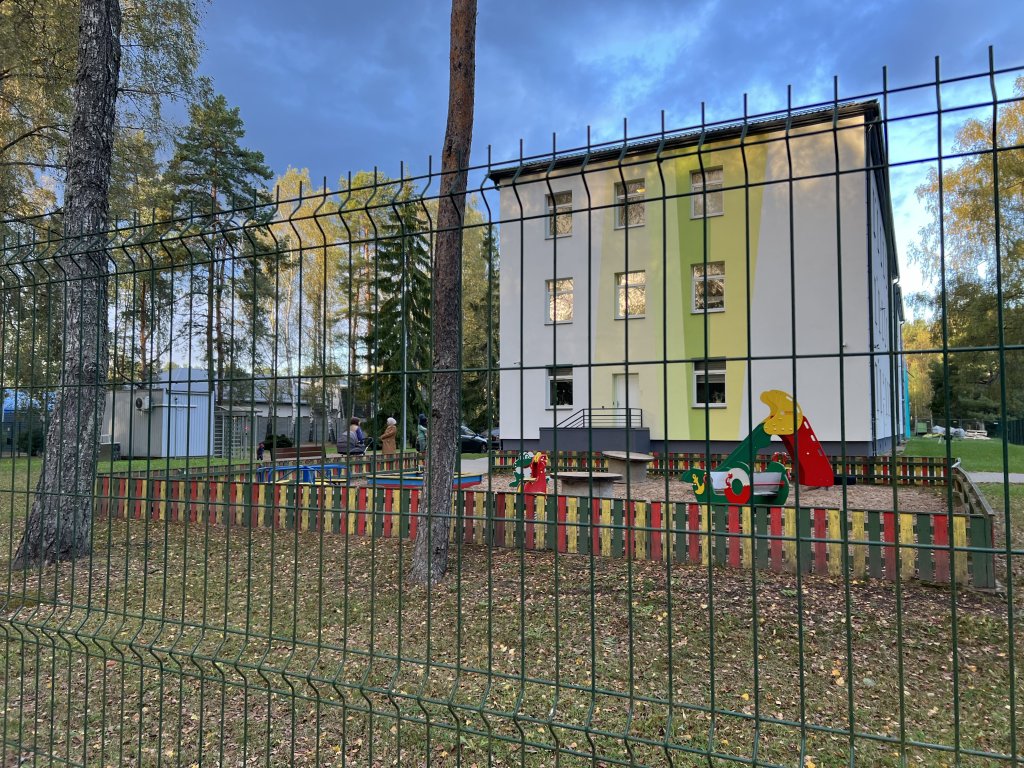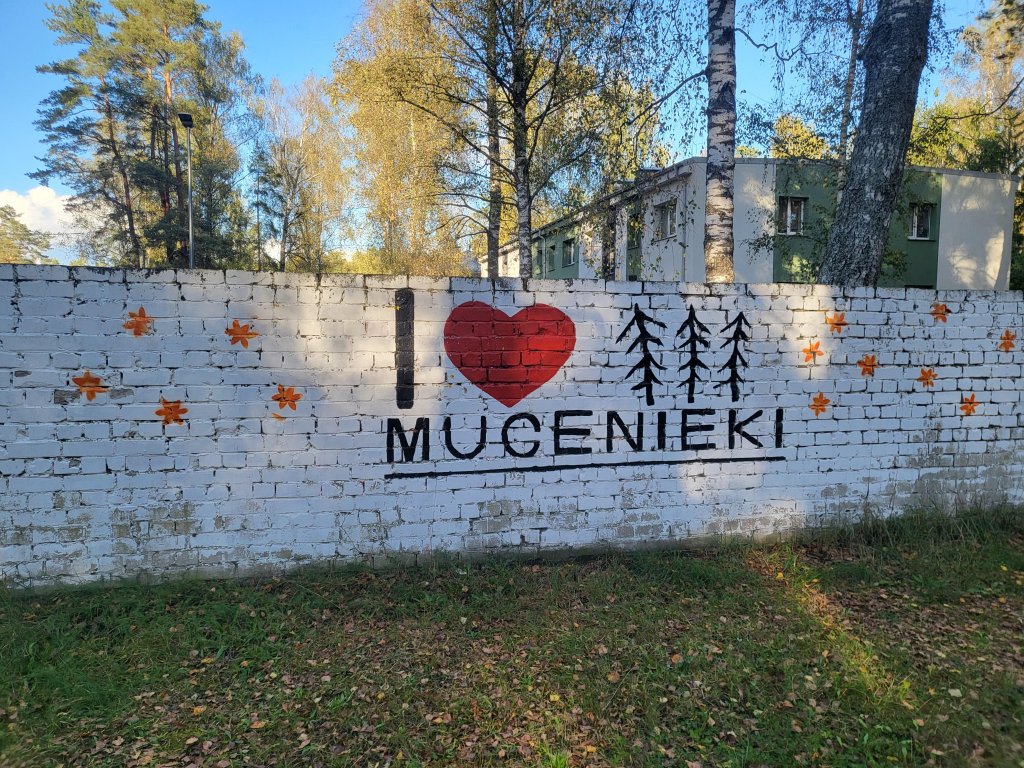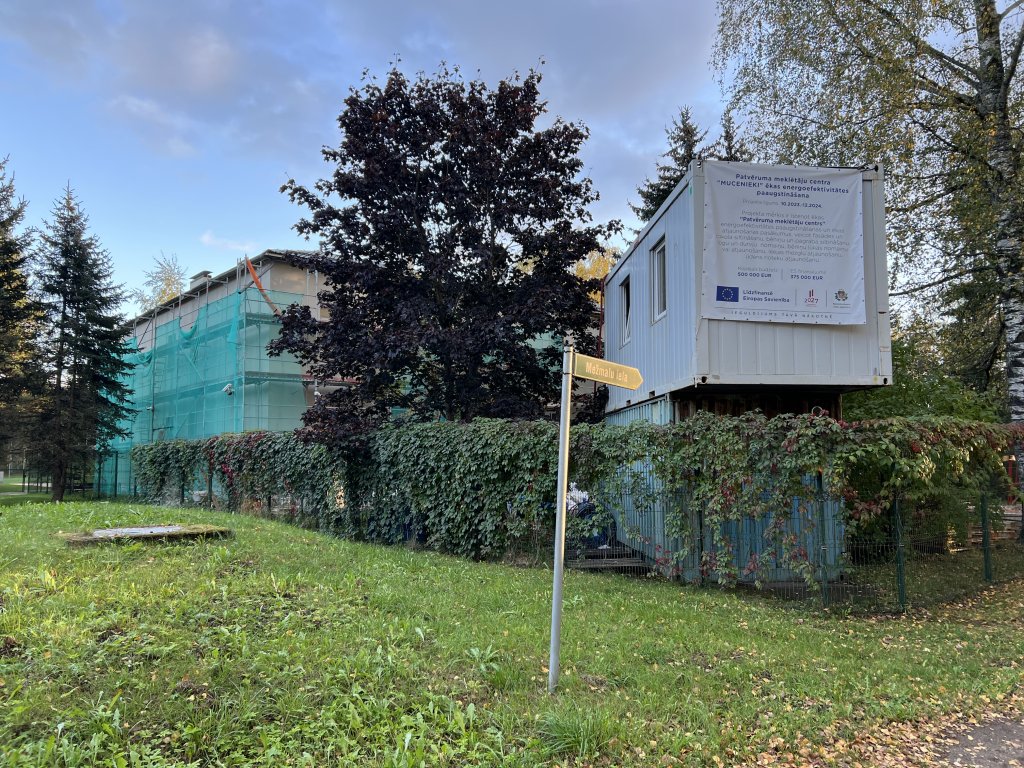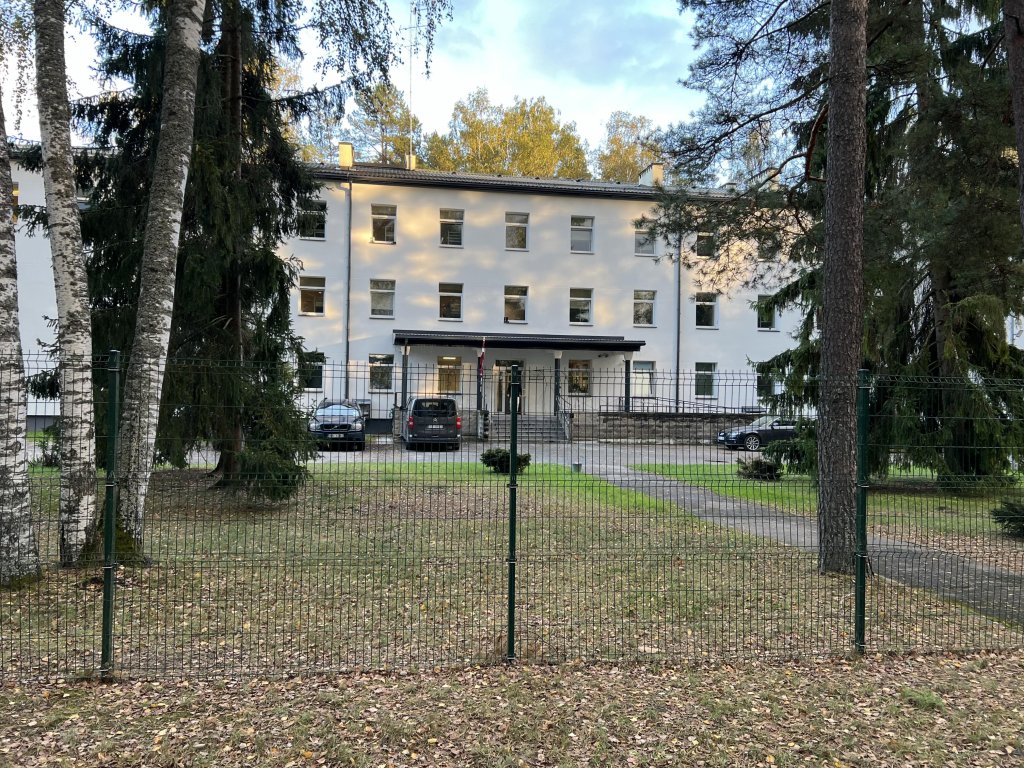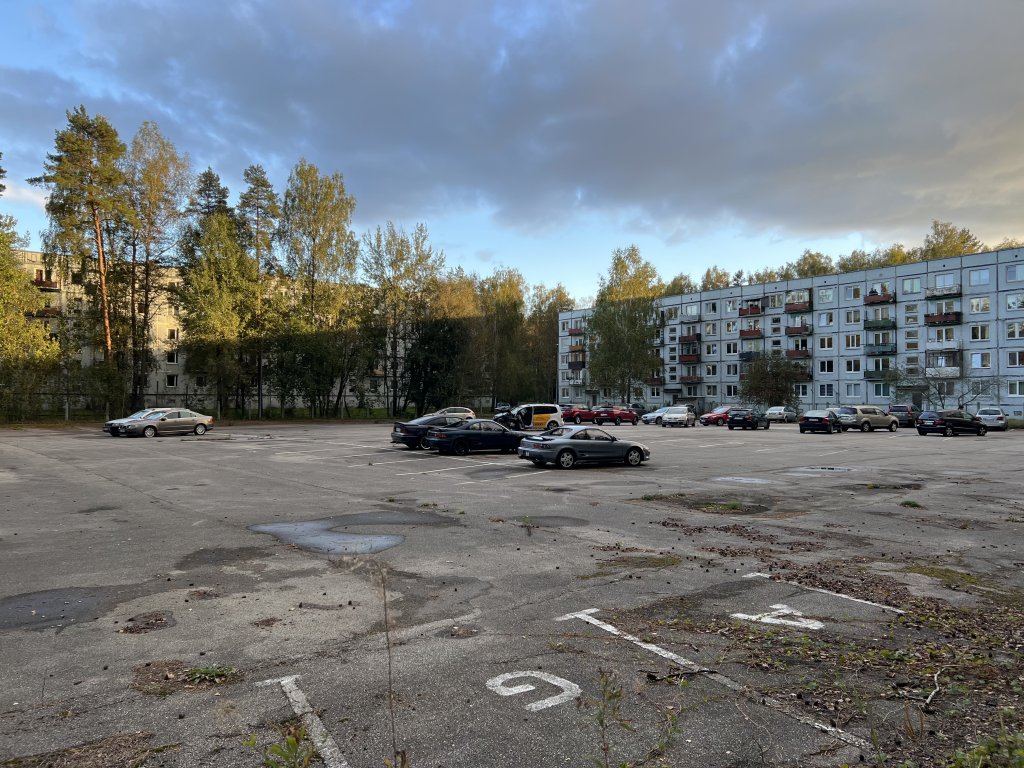Since the Belarus route emerged in 2021, EU member state Lativa has become a transit country for thousands of migrants. Several migrants interviewed by InfoMigrants at a reception center near Riga shared their experiences of how they ended up in Latvia and expressed frustration over poor living conditions, incidents of violence by border guards, and a general hostility toward migrants in the country.
Upon arrival at the Latvian village of Mucenieki, located a 45-minute drive east of the country's capital, Riga, it doesn't look too different from many other small municipalities. But walk a few meters from its only bus stop and food store, and you'll discover two of Latvia's four reception centers for migrants. Two are open centers, and two are closed centers.
Together the two facilities in Mucenieki house an estimated 200 asylum seekers and migrants, including families, from more than a dozen countries -- around a third of Mucenieki's shrinking population.
One of Latvia's two 'accommodation centers for detained foreigners', which everyone here refers to as the "closed camp", is located across a narrow street from Mucenieki's 'accommodation center for asylum seekers', which former and current residents fittingly call "open camp" because migrants staying here can come and go during the day.
One of the few notable places in Mucenieki is a recently upgraded soccer field in the direct vicinity of the two facilities. Accordingly, it is easy to meet migrants there.
Musab, from Sudan
One of them is Musab. The Sudanese national, who doesn't want to see his real name published, arrived in Latvia in November 2023.
"Life in Sudan was not good," the 28-year-old tells InfoMigrants during a visit in September. "There's so much violence. One of my friends died in the war," which left tens of thousands of people dead since it broke out in 2023.
When fighting got so bad that he was afraid he might get killed, too, he decided to flee. "People told me on Instagram that once I'm in Russia, I can easily enter the EU," he says, referring to migrants who had entered the European Union via Belarus.
But as Musab would soon realize, some things look too good to be true.
At first, however, everything went according to plan. After arriving in Moscow on a study visa, he worked in a barber shop for four months in the major city of Kazan. "Life was not bad in Russia, but not good, either," he says, adding that "everything was cheap."
But after three months, his Russian language course, and with it, his visa, ended. "I couldn't pay the university fees for a new language course," Musab remembers.
Since his plan was to go to Europe the whole time, he collected enough money from family and friends to pay 5,000 dollars (around 4,700 euros) to a smuggler, who'd get him to Europe. He first went to Belarus, from where virtually all irregular migrants try to enter Latvia.
Unrealistic expectations
He thought crossing the EU external border was going to be easy, but the time he spent in the border region between Latvia and Russia was "very hard," he remembers.
"There was a hole dug under the fence," he says, which he and 13 other migrants from different countries crawled through. After six days of walking and sleeping rough, the group reached Riga, Latvia's capital.
"The smuggler only showed us where the hole is," he says "Even 200 dollars wouldn't have been worth it. If we had known the route, we could have come on our own."
Aside from battling the cold, he says he was also afraid of Latvian border guards because he had heard stories about violent pushbacks. He and the other migrants were soon caught and half the group was sent to Mucenieki for fingerprinting. After ten days in the closed camp, he was moved to the reception center across the street.
"We were afraid, I didn't know what was going on. I didn't know Latvian," he tells InfoMigrants. "But now it's better," he adds.
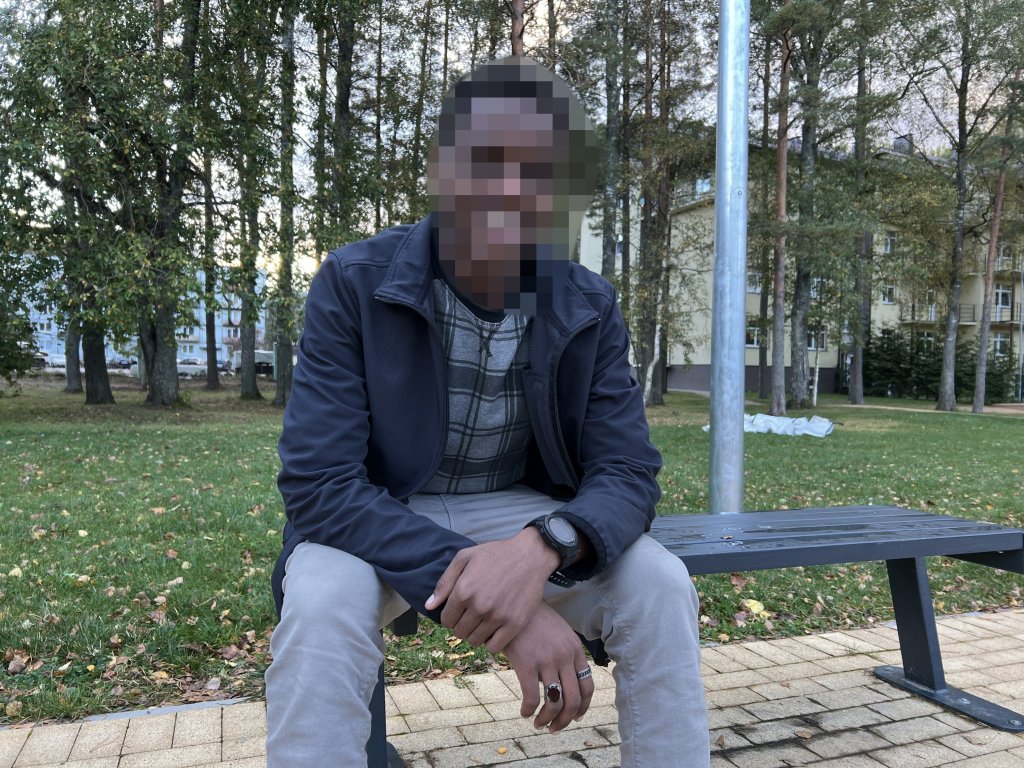
'You cannot get much of anything'
After a year in Mucenieki, he still dislikes it. "For 21 euros [in state benefits] per week, you cannot get much of anything." Another reason for his dissatisfaction is the lack of privacy in the camp. Initially, he had to share a room with 13 people. The smell, the dirt and the noise meant sleep was hard to come by, he says. After the first three months, he was able to move to a four-person room.
Musab also laments the lack of adequate medical care and of things to do in Mucenieki, although he admits he didn't apply for a job despite the option to work three months into the asylum process.
Migrants at the open camp get ten free tickets per month for buses to Riga, which leave once an hour.
In May, after two asylum interviews, Musab received so-called alternative status, which allows him to stay in Latvia for one year, with the option -- in theory -- to renew it.
With the 84 euros he receives per month while he's still staying in Mucenieki, Musab cannot make any big leaps. "I often take the bus to Riga to go for a walk there, and sometimes to a nightclub that doesn't have a cover charge," which makes him happy at that moment, he says. "I cannot buy any drinks, I just talk to anybody I can."
Although his ultimate goal is to go to the UK, where he has family, his current plan is to stay in Latvia and save money. "I don't want to start from the beginning," he says. Having worked as a barber in Sudan and Russia, he hopes to eventually open his own barbershop somewhere in Europe.
Although Musab now has a degree of freedom in Latvia, and the possibility of moving around, he is afraid if he travels too far, he might lose the permit he already has. "What if they don't renew my permit," he wonders. "I wish I had refugee status, but it's impossible. They don't believe our stories [in the asylum interview], except if you're lucky like Abbas."
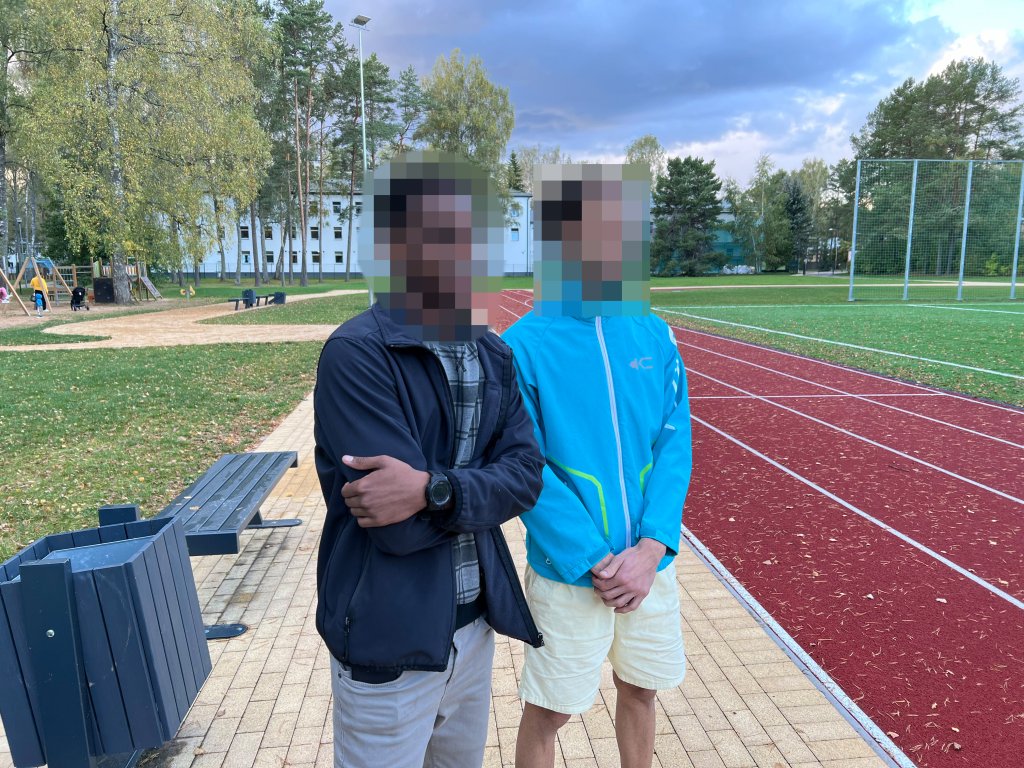
Abbas, from Iraq
Abbas, from Iraq, arrived in Mucenieki shortly before Musab, though making it there -- and securing refugee status -- was anything but certain.
Unlike Musab, Abbas went straight to Belarus after arriving in Russia from Iraq on a student visa. Following a one-month preparation in the country's capital, Minsk, the 21-year-old first tried to enter the European Union via Poland.
"It was very cold at night," he recalls. After trying to cross into Poland twice, together with a dozen Iraqis and Syrians over the course of eight days, his food supplies -- and his resolve -- were depleted.
"We tried to crawl under the fence, but the Polish border guards pointed their guns at us," he says. "Plus I had finished my food, water, and I was weak, so I went back."
He waited in Minsk for 15 days before deciding to try the Latvian border next. On the first attempt, he says, his group managed to travel 17 kilometers inside Latvia until authorities intercepted them, dropped them off at the border fence and told them to go back to Belarus. He says police beat them inside a van and used electric shocks -- a common accusation voiced by migrants InfoMigrants spoke to in Latvia. It is an accusation the Latvian authorities categorically deny.
"One day later, we tried again and made it one kilometer inside, but they caught us again," Abbas says. Wanting to return to Minsk, Belarusian border guards at first wouldn't let them.
"They said 'You can't, go back to Latvia' -- despite having women and minors in our group," he recalls. Although he was temporarily held up, Abbas says he managed to reach Minsk two days later.
Read AlsoBelarus 'coordinating' irregular migrant crossings, Latvia’s border guard claims
Border scenes and soccer dreams
After recovering in Minsk for ten days, he returned to the Latvian border. This time, despite being caught again one month after his first crossing attempt, he was brought to Mucenieki, where he stayed in the closed camp for five days before being moved to the open camp.
His experience in Latvia over the past year has been mostly negative, he says. When asked about the worst part, he immediately mentions instances of what he perceives as racist behavior from some members of the camp administration.
Abbas also hasn't made much progress yet toward his dream of playing for a big soccer club. A refugee soccer tournament in Switzerland in the summer was out of reach because he was still in the asylum process.
Now that he can travel thanks to his refugee status, however, he wants to go to Germany to enjoy a match with his favorite player, Bayern goalkeeper Manuel Neuer.
He says he's grateful to have received refugee status. When he was granted it in August, fewer than one in three Iraqi asylum seekers were granted that status according to the EU's asylum agency. "I can now start my life, which makes me very happy." At least for now, he wants to stay in Latvia.
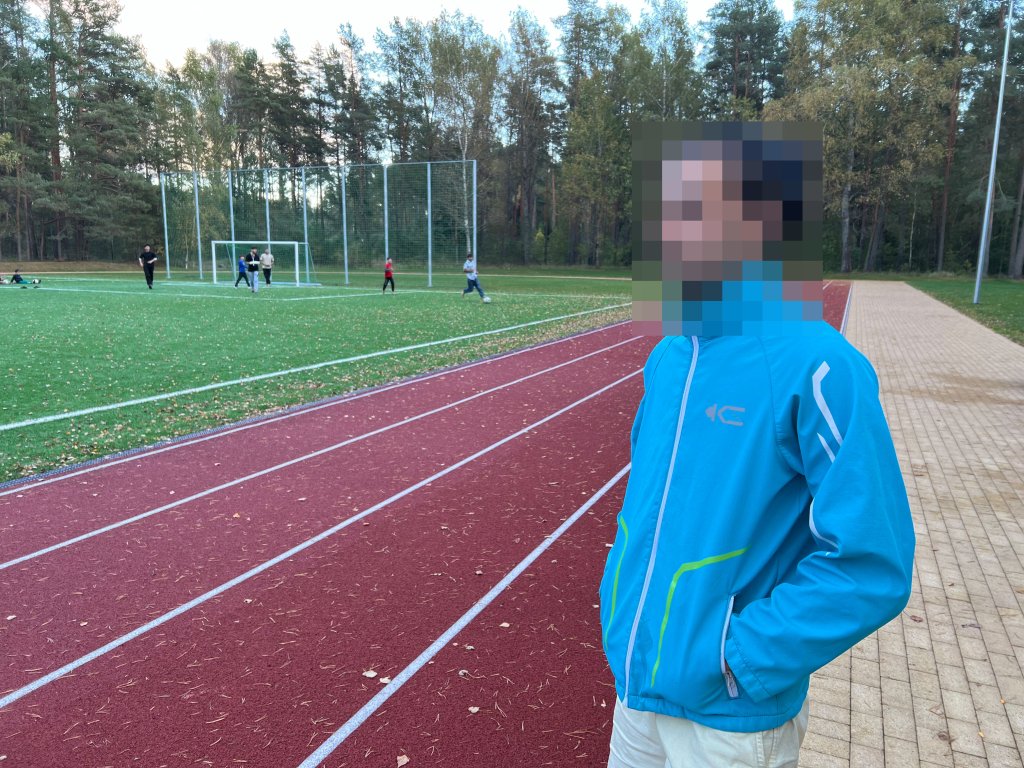
Aza, from Burundi
Abbas' status and the privileges that come with it are things Aza can only dream of. The 19-year-old Burundian is currently waiting for the outcome of the appeal of his rejected asylum application.
The news came in September, after three rounds of asylum interviews. "I felt sadness, thinking 'what am I going to do now?' If I go back to Burundi, my family still doesn't have the money to protect me, let alone organize another voyage. It was like a destruction for me," he tells InfoMigrants.
Growing up in Burundi, a landlocked country in Southeast Africa with a population of some 14 million people, wasn't very tough, says Aza, which is not his real name. But when he turned 18, things "got more complicated," he says in a euphemistic tone, because he actually received an arrest warrant.
"The government in Burundi forces youngsters to join them," Aza explains. "I presume they saw me as a threat because I told and convinced the younger population that they're able to stand for their rights and that they are able to choose another political party." Burundi's main opposition party was suspended by the government last year.
Fearing for his life, Aza found a local smuggler, who was supposed to help him. But Aza says he took the huge sum his family paid him -- 4,000 euros -- and ran.
Aza then sought shelter at his grandparents' house, but even in their village some people called him a "threat to the government" and urged him to leave, Aza says.
With the help of other acquaintances, he says he found another person who planned his escape. With a visa in hand but another 4,000 euros poorer, he then took a plane to Belarus with stops in Ethiopia and Dubai.
Betrayal, anguish, fear – and a sliver of hope
After a few days in Belarus, he paid another 1,500 euros to another person from Burundi so he could cross into Latvia with a group of other migrants. In September 2023, they were dropped off in the Belarusian forest near the Latvian border in the middle of the night.
"We just followed the leader of our group," Aza recalls. "At the border, a door in the fence was open. Maybe it was the will of God. We checked, there were no border guards, so we just crossed."
After walking for more than a day, he says, a vehicle picked them up with Aza expecting to be dropped off in Germany. "When we arrived, I was thinking I'm free, so I bought a new phone. When I checked my location on a map, I realized something was off."
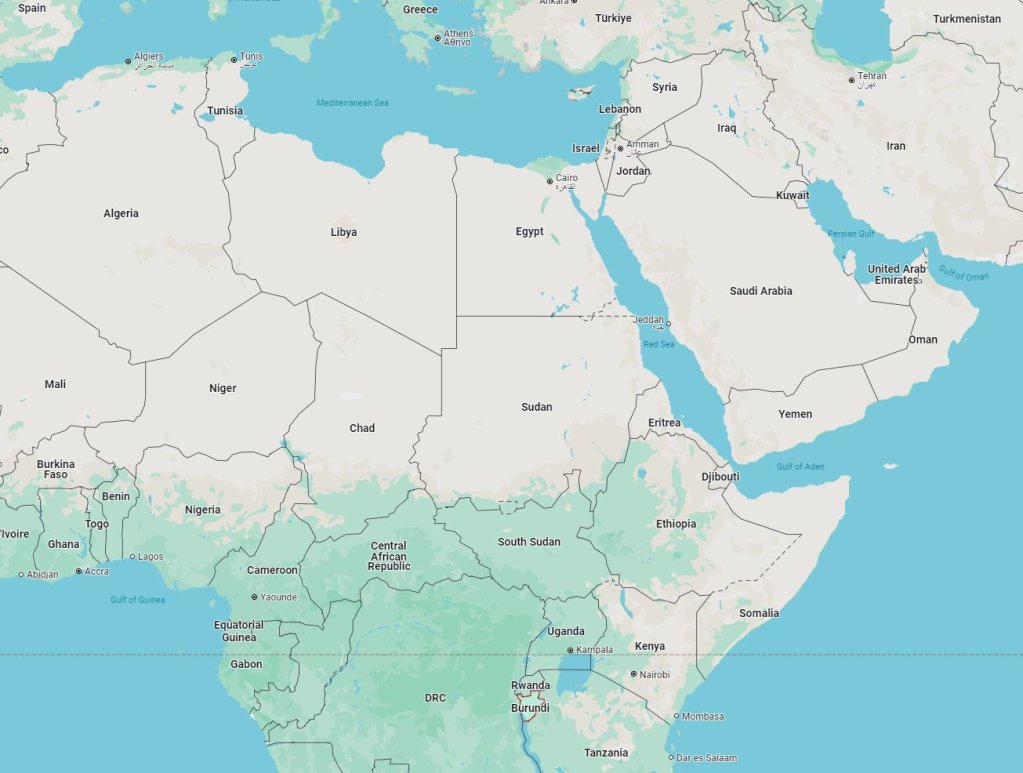
Instead of driving them to Germany, the driver had dropped Aza and the other five migrants off in Riga. At this point, Aza had spent a total of 10,000 euros but still wasn't in the country he was promised.
"It was another betrayal," he told InfoMigrants. "It was especially bad given that Burundi is one of the poorest countries in the world. I don't even know which kind of situation I left my family in."
When asked if he's in touch with his family, Aza says they advised him not to talk to them. "Maybe it's because of the money. They don't tell me how bad their situation is. I guess they don't want to stress me out."
The day after realizing he was in Riga, immigration officers raided the hostel he was staying in, according to Aza. Following 22 days in the closed camp in Mucenieki, he was able to go to an open camp because he was able to prove his identity with the national ID card he was carrying with him, Aza recalls.
When asked about the appeal of his rejected asylum application, his voice turns from tense to anguished. "I think it will be negative again. I saw other people here in the open camp from Cameroon, Mali and Senegal, so maybe I'll be the same. Maybe we are in the same situation."
In the case of deportation to Burundi, he fears the worst. "When I'm thinking about that option, I think about death. That's the only word I can put on that situation," he says.
If there is something that still gives him hope, it's God, he says. "Perhaps he'll perform a miracle like he did at the border fence. I'm from a country where the average amount people have to get by is 50 cents per day. Here, I have somewhere to stay, I have hot water, sometimes even have a job."
Read AlsoVideo: Hajib's story of ill-treatment by Latvian border guards
Saleh, from Yemen
In contrast to Musab, Abbas and Aza, Saleh Othman no longer lives at the reception center in Mucenieki.
After a brief period at the detention center in November 2023 followed by seven months in the open camp, Saleh received alternative status like Musab and moved to a dormitory on the outskirts of Riga on the premises of a construction company, for which he works full-time.
When asked about his emotional reaction to his first visit to Mucenieki since he left in July, he replies: "Too many bad things happened here."
"People were struggling mentally, but they didn't bring them to specialists," he explains. "There was only one family doctor here on certain days who'd only give people painkillers. One guy from Somalia had cancer. When they called an ambulance, the medics said 'we don't know what to do, give him painkillers.'
"I really don't know if it's because we are migrants or if all of Latvia is like that," Saleh wonders.
Saleh says the overall living conditions were poor, too. "The situation in the washrooms was really bad. Sometimes the washing machines were broken. We had to wait for a long time until it was our turn because they didn't fix them."
He also says the quality of the products they received such as shampoo, soap and detergent were not up to any normal standards. "If you ask the guards if they would use the shampoo for their dog, they would say no."
'Too many bad things happened here'
In addition to the 84 euros in cash each migrant is entitled to per month, they also received peas and white beans, a kilo of oats, a kilo of pasta, a carton of tea containing ten pieces of sugar, oil, rice, and two kilos of flour -- "all in the worst quality and not nearly enough," according to Saleh.
"We had to spend almost all our money on vegetables," he says, adding that they weren't able to receive money from their families.
"That's why people are running. No one wants to stay in Latvia."
Saleh also claims that several of the staff were disrespectful and racist. "One day I asked a guard 'How are you?' 'Bad, because I saw you.' 'If you are always sad, why don't you leave?.' When he threatened me with jail, I replied: 'Latvia itself is already a jail.'"
One of the few positive experiences was the time when he needed new glasses. "They brought me to a specialist and paid for a new pair," he recalls.
Designed to deter?
Not all of Musab's, Abbas', Aza's and Saleh's negative personal experiences in Latvia may be representative of migrants' overall experiences in the country. But based on their testimonies and those of other migrants InfoMigrants spoke to, it appears they're not the exception, either.
None of the organizations InfoMigrants reached out to, including UNHCR and the Council of Europe, could provide any up-to-date reports nor comment on reception conditions for migrants in Latvia -- with the exception of the Latvian Center for Human Rights, which said the support asylum seekers and other migrants in Latvia receive is "objectively not enough".
The latest available, comprehensive evaluation of reception conditions InfoMigrants was able to obtain -- a 2022 report funded by the European Commission that looked at aspects including residency, family reunification, housing, employment, health and language learning --, Latvia ranked eighth overall among 14 EU countries. While it scored worst in residency for beneficiaries of subsidiary protection, for instance, it was in the top three for family reunification for recognized refugees.
InfoMigrants also sent an extensive list of questions to both Latvia's Office of Citizenship and Migration Affairs (OCMA) and Latvia's State Border Guard. While the former pointed to this "guideline for asylum seekers", arguing they're only partly responsible, the border guard didn't answer any questions directly.
When asked about complaints about inadequate living conditions, OCMA wrote: "Responses to asylum seekers' applications are provided in accordance with the legislation of the Republic of Latvia, based on the relevant competence."
Anna Grike, a NGO worker who monitors the borders with Belarus, says while the manner in which Latvia deals with migration, especially asylum seekers arriving from Belarus, is "immature" and "ethno-nationalistic", it needs to be viewed in the light of aggression coming from the direction of Russia, both past and present.
"The small acts of violence inherent in the [reception] system already deliver a message to those staying there, that you're not so welcome, or, if you're willing to be welcomed, then you have to suffer," she tells InfoMigrants. "But Latvia's response to migration is linked to its historical context," she adds, referring to the post-war decades-long Soviet occupation of their country that included mass deportations.
Read AlsoSmall changes, big consequences: Stricter migration policies make job seeking harder in Finland

